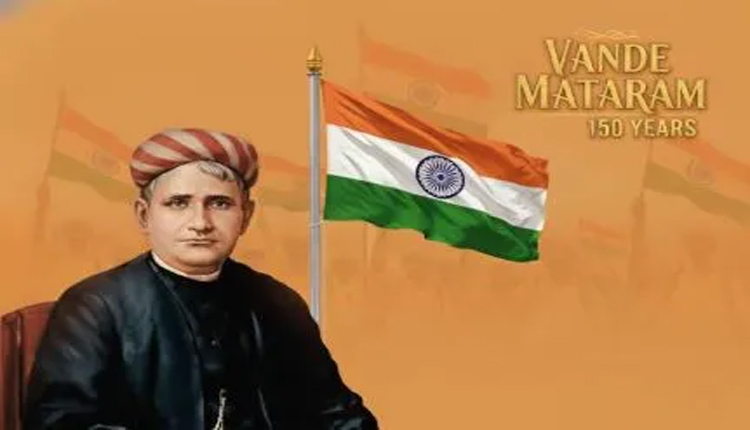New Delhi: A fresh political storm has erupted over India’s national song ‘Vande Mataram’ on its 150th anniversary, with Prime Minister Narendra Modi accusing the Congress of ‘fragmenting’ the anthem in 1937, drawing a sharp rebuttal from the Opposition amid objections from Muslim leaders, particularly in Jammu and Kashmir.
The controversy intensified when the Jammu and Kashmir administration mandated schools to sing ‘Vande Mataram’ to mark the milestone. The Muttahida Majlis-e-Ulema (MMU), led by Mirwaiz Umar Farooq, strongly opposed it. They argued that the song’s references to worshipping Mother India as a deity contradict Islamic principles, which permit reverence only to Allah. “This is an attempt to impose Hindutva ideology under the guise of cultural celebration,” Farooq stated, warning that forcing Muslim students would be unacceptable.
PM Modi, while releasing a commemorative stamp and coin, lambasted the Congress for truncating the song to appease objections. He referenced a committee led by Jawaharlal Nehru, including Maulana Abul Kalam Azad. This committee decided to sing only the first two stanzas — deemed non-offensive to Muslims — during the 1937 Faizpur session. “This fragmentation sowed the seeds of nation partition,” Modi claimed.
Congress spokesperson Supriya Shrinate hit back, asserting that the party sings both ‘Vande Mataram’ and the national anthem ‘Jana Gana Mana’ at events. This is unlike the RSS and BJP, which prefer their organisational hymn ‘Namaste Sada Vatsale’. She accused the RSS of shunning the song since 1925.
Penned by Bankim Chandra Chatterjee in 1875 as a retort to the British-imposed ‘God Save the Queen’, ‘Vande Mataram’ is featured in his 1882 novel ‘Anandamath’ and was first sung by Rabindranath Tagore at the 1896 Congress session. Adopted as the national song in 1950, it fuelled the freedom struggle but has long sparked debates over its perceived Hindu imagery.
This row underscores the enduring tensions between cultural nationalism and religious sensitivities in India’s diverse fabric.



Comments are closed.